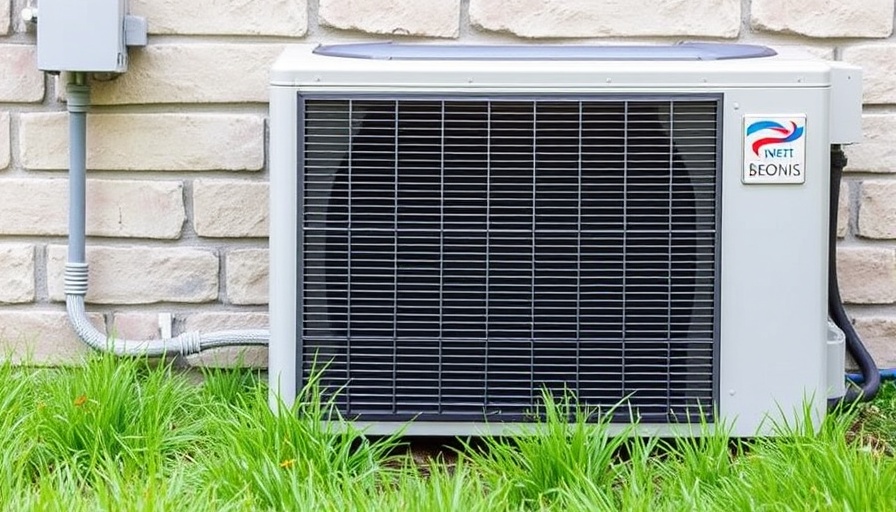
The Hidden Costs of Central Air Conditioning
As homeowners increasingly rely on central air conditioning, many are beginning to wonder about the impact on their energy bills. A recent discussion on Reddit has highlighted a growing concern: does your central AC use as much electricity as mine does? This question strikes at the heart of a much larger conversation about energy consumption, climate change, and sustainable living. With the summer heat intensifying and more people turning to their air conditioning units for relief, understanding energy usage is crucial for informed decision-making.
Understanding Energy Use in Your Home
Central AC units can account for a significant portion of a home’s energy consumption during the warmer months. According to the U.S. Department of Energy, air conditioning can take up almost 12% of total household energy use. For many households, this can translate into hundreds of dollars spent on electricity. To truly grasp the impact of these systems, homeowners need to consider several factors, including the efficiency of the unit, its size in relation to the house, and weather-related influences.
Efficiency Ratings: SEER Explained
One of the key metrics for assessing the efficiency of an air conditioning system is the Seasonal Energy Efficiency Ratio (SEER). The higher the SEER rating, the more efficient the AC unit is in converting electricity into cooling power. Homeowners should aim for units with a SEER rating of 14 or higher, with many newer models boasting SEER ratings between 16 to 25. Investing in a higher-rated unit can lead to substantial savings on energy bills over time.
Parallel Example: The Switch to Solar Power
For those seeking to reduce their reliance on traditional power sources, solar energy is a compelling alternative. Many homeowners have made the switch to solar panels to mitigate their electricity costs while contributing to a more sustainable future. This transition is often tied to the increased efficiency of newer AC systems, which in turn makes the adoption of solar energy more viable. Solar solutions can combine well with energy-efficient appliances to create a self-sustaining home.
Future Predictions: Energy Trends Impacting Homeowners
As technology evolves, so too will energy consumption trends. A significant trend is the development of smart home technology, which allows homeowners to manage their energy usage proactively. Thermostats that learn user preferences can optimize AC use based on when people are home. It's predicted that by 2030, smart technology will reduce energy consumption across the board, meaning that a well-managed home could see a drastic drop in energy-related expenses.
Taking Action: Steps for Homeowners to Save Energy
Homeowners looking to reduce their AC’s energy consumption can start with simple steps. Regular maintenance, such as changing filters and cleaning ducts, can improve efficiency. In addition, sealing windows and doors can help maintain indoor temperatures, reducing the need to cool excessively. Lastly, homeowners may be surprised by the benefits of shading their AC units with trees or awnings, which can significantly lower electricity usage.
Emotional Insights: The Human Side of Energy Efficiency
Beyond just numbers, these concerns reflect a deeper desire for comfort and sustainability. Homeowners want to feel safe, cool, and connected to a larger community that values the planet. With rising temperatures and climate challenges, taking control of energy consumption through incremental changes resonates well with those desiring to contribute positively to their environment. Building a more sustainable lifestyle through energy-efficient solutions not only enhances personal economies but fosters a sense of community and responsibility.
In summary, as discussions around energy consumption intensify, it's vital for homeowners to examine their air conditioning use closely. Reducing electricity costs while increasing comfort can achieve both financial and environmental gains. A smart approach to home energy use combines awareness, technology, and proactive measures that, ultimately, can lead us all toward a more sustainable future.
Now is the time to critically assess your energy usage. Take stock of your central AC system, explore energy-efficient options, and consider how you can contribute to a more sustainable environment.
 Add Row
Add Row  Add
Add 



Write A Comment